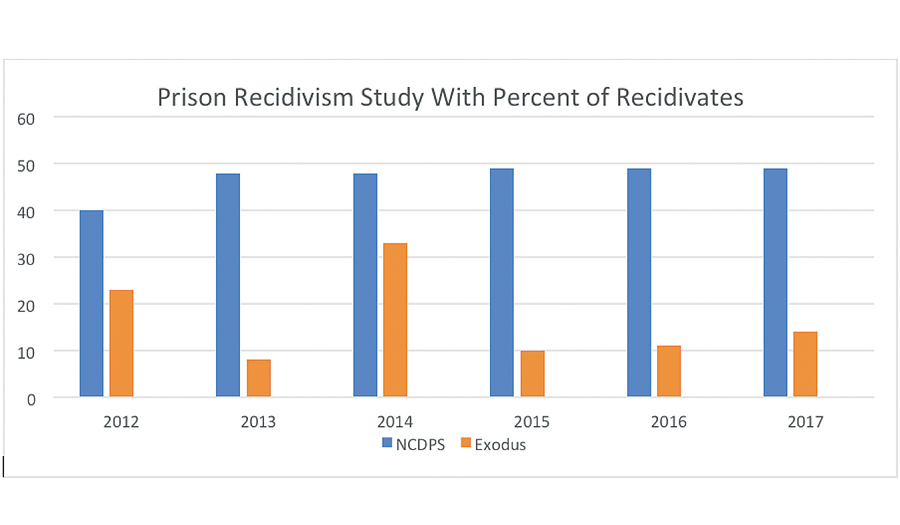Hickory – Exodus Homes, a faith based United Way agency that provides 73 beds of supportive housing for homeless recovering people returning to the community from treatment centers and prison has just completed a six year prison recidivism study that demonstrates the effectiveness of their program. The study was done by Appalachian State University criminal justice intern Lori Smith who was able to be at Exodus Homes 40 hour a week from mid-January to the end of April. Over the years Exodus has provided internship opportunities for students from many area colleges and universities but rarely have they had a student who could give so much time for such an extended period. “We realized this time we had the time we needed and the right kind of student to do this longitudinal study” said assistant executive director the Rev. Susan Smith.
The project used the N.C. Department of Public Safety Research and Planning Automated Query to conduct the study. For the years 2012 – 2017 it compared the recidivism rate of Exodus Homes’ residents who came from prison and stayed at least 90 days to the recidivism rate of the general inmate population who were released from prison after staying at least 90 days. No one goes to prison in NC for less than 90 days. The study covered the first two years after release from prison for both groups because that is how the NC Department of Public Safety measures their own recidivism rate. During these six years the average recidivism rate for the NC Department of Public Safety was 47%. The average recidivism rate for Exodus Homes’ residents who had come straight from prison was 16.5%. The study concluded that Exodus Homes was able to reduce the recidivism rate of residents who came from prison by 65% during the first two years of re-entry.
“We have always known from experience that our program significantly reduces prison recidivism and this study gives us the data we needed to prove it” said the Rev. Reggie Longcrier, Exodus Homes executive director. ASU intern Lori Smith had to stay longer than her internship lasted to complete the study and the data she complied will be used to analyze other aspects of the program. She will be invited back every year to do follow-up recidivism studies as a volunteer. “I’m honored I was able to do something so important in my internship and I’m looking forward to working with them again’ said Smith.
Photo: A graph depiction of the study.









